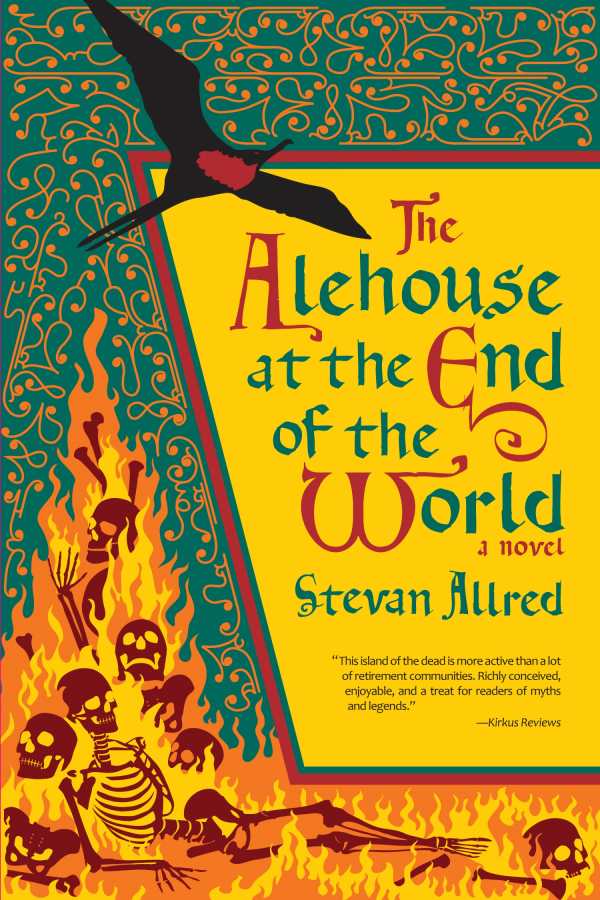The Alehouse at the End of the World
- 2018 INDIES Winner
- Bronze, Fantasy (Adult Fiction)
Stevan Allred’s The Alehouse at the End of the World is a raucous romp through the afterlife, replete with Shakespearean echoes, antiquated wordplay, and sexual liaisons.
A nameless fisherman receives a letter from his lover bidding him to search for her in the afterlife. But when he finally reaches the shores of that realm—after being swallowed by a whale—he discovers that the afterlife is not how he had always imagined it.
When restoring his lover proves to be more complicated than he anticipated, the fisherman turns to three bird gods—a gentle pelican, a scholarly cormorant, and a piratical frigate bird—to help him. Together with a lusty fertility goddess, this band of heroes navigates the threads of fate to overthrow a tyrant and prevent unmitigated disaster in both the spirit and material worlds.
The narrative is a creative amalgamation of myths and stories from various Eastern and Western traditions. The Fates—here called the Turropsi—make an appearance as tentacled creatures, in keeping with the aquatic motif. The souls of the dead burrow into the afterlife’s beach and become clams. Their bodies are burned on the sacred fire to appease the Kiamah beast, swallower of worlds. Grotesque details abound, including of a crow who claims to be the King of the Dead snacking on the body parts of the deceased. Rapturous and pleasant after-death experiences are not to be found here.
The fertility goddess, Dewi Sri, is a powerful feminine presence in the novel; she unabashedly delights in sexual revelries. Explicit erotic encounters play no small part in the unfolding events, though the frequency of these encounters can at times detract from the elsewhere engaging plot.
The Alehouse at the End of the World weaves together mythic circumstances and language to form a tale of heroism, self-sacrifice, and love that speaks to turbulent times.
Reviewed by
Meagan Logsdon
Disclosure: This article is not an endorsement, but a review. The publisher of this book provided free copies of the book to have their book reviewed by a professional reviewer. No fee was paid by the publisher for this review. Foreword Reviews only recommends books that we love. Foreword Magazine, Inc. is disclosing this in accordance with the Federal Trade Commission’s 16 CFR, Part 255.

